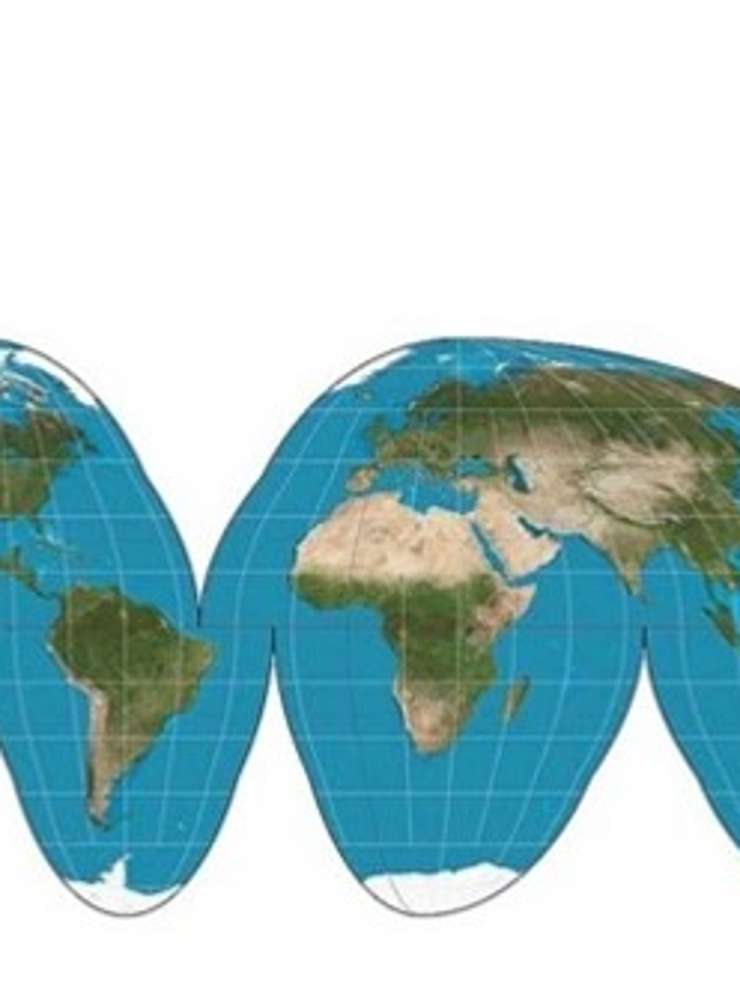News
View all news from the Amsterdam University of Applied Sciences. Looking for a particular news update? Click the magnifying glass at the top of the page to search.
Countermapping: how new maps rewrite the world
Africa wants to be shown as the correct size on the world map, as recently reported on NOS.nl. Maps can restore people's rights, as UvA PhD candidate Jochem Kootstra of t...

Research group for entrepreneurship to be phased out, expertise to be retained
The Research Group Entrepreneurship will be gradually phased out. During this process, we aim to retain as much knowledge as possible on this important topic.

Start Care & Repair: working together to make clothes last longer
At the Fashion Research & Technology Group, we believe fashion does not end on the catwalk or in the store. The real story begins afterwards, in how we wear, care for, an...

Options Guide for Higher Professional Education 2026: AUAS continues to work on improvement measures initiated
Today, the Options Guide for Higher Professional Education (Keuzegids Hoger Onderwijs) 2026 was published. The guide bases itself largely on some results from the Nationa...

AI expert Susskind: “AI will change the nature of legal practise itself”
On Tuesday 30 September the Amsterdam University of Applied Sciences (AUAS) organised a debate. Keynote speaker: Professor Richard Susskind, author of best-selling books...

Geleyn Meijer steps down from board to focus on Europe
Geleyn Meijer will end his role as vice chair of the Executive Board of Amsterdam University of Applied Sciences (AUAS) from 1 January 2026 and will work to strengthen th...

Merel Noorman has started as associate professor in Responsible AI
The world of artificial intelligence is developing rapidly, raising important questions. How can we ensure that society retains control over technological innovation? Mer...

How do we make the sustainable choice the easy choice?
Sustainable behaviour takes more than good intentions. We know what needs to be done, from collecting rainwater to reducing our meat consumption, but putting these things...

Louise ter Kuile Appointed as Interim Dean of the Faculty of Business and Economics
Effective October 1 2025, Louise ter Kuile will start as Interim Dean of the Faculty of Business and Economics (FBE). She succeeds Suzanne Ekel, who recently decided to s...

Supervisory Board welcomes two new members
Two new members will join the Supervisory Board from 1 September: Manon Kluijtmans and Jaco van Goudswaard. They are succeeding, respectively, Valerie Frissen and Ron de...

AUAS research group FR&T designs digital product passport for fair fashion
Is this garment really as sustainably produced as the manufacturer claims? And what material is my shirt actually made of? These are the kinds of questions the Digital Pr...

Robot Lab Designs Reclaimed Wood Cladding for Bowling Alley
It is the true eye-catcher of the restaurant at Bowling Leeuwarden: the wall with the wooden panels. The panels were designed at the Robot Lab of the Amsterdam University...

Universities of applied sciences introduce society to quantum technology
Like Europe as a whole, the Netherlands aims to take up a leading position in quantum technology and photonics. However, this will only succeed if the knowledge acquired...

Irena van Nynatten-Janikowska honoured for outstanding contributions to education and global citizenship
The Amsterdam University of Applied Sciences proudly announces that Irena van Nynatten-Janikowska has been awarded the prestigious Royal Honours Award in recognition of h...

AUAS Contributes to HOGENT’s Festival on Art and Justice
During the International Days at the University of Applied Sciences and Arts in Flanders (HOGENT), students and professionals from all over Europe came together with one...

EPIC-WE: advancing youth engagement with cultural heritage through collaboration
On March 21 and 22, 2024, the EPIC-WE consortium gathered at the Amsterdam University of Applied Sciences (AUAS) and the Netherlands Institute for Sound and Vision in Hil...
